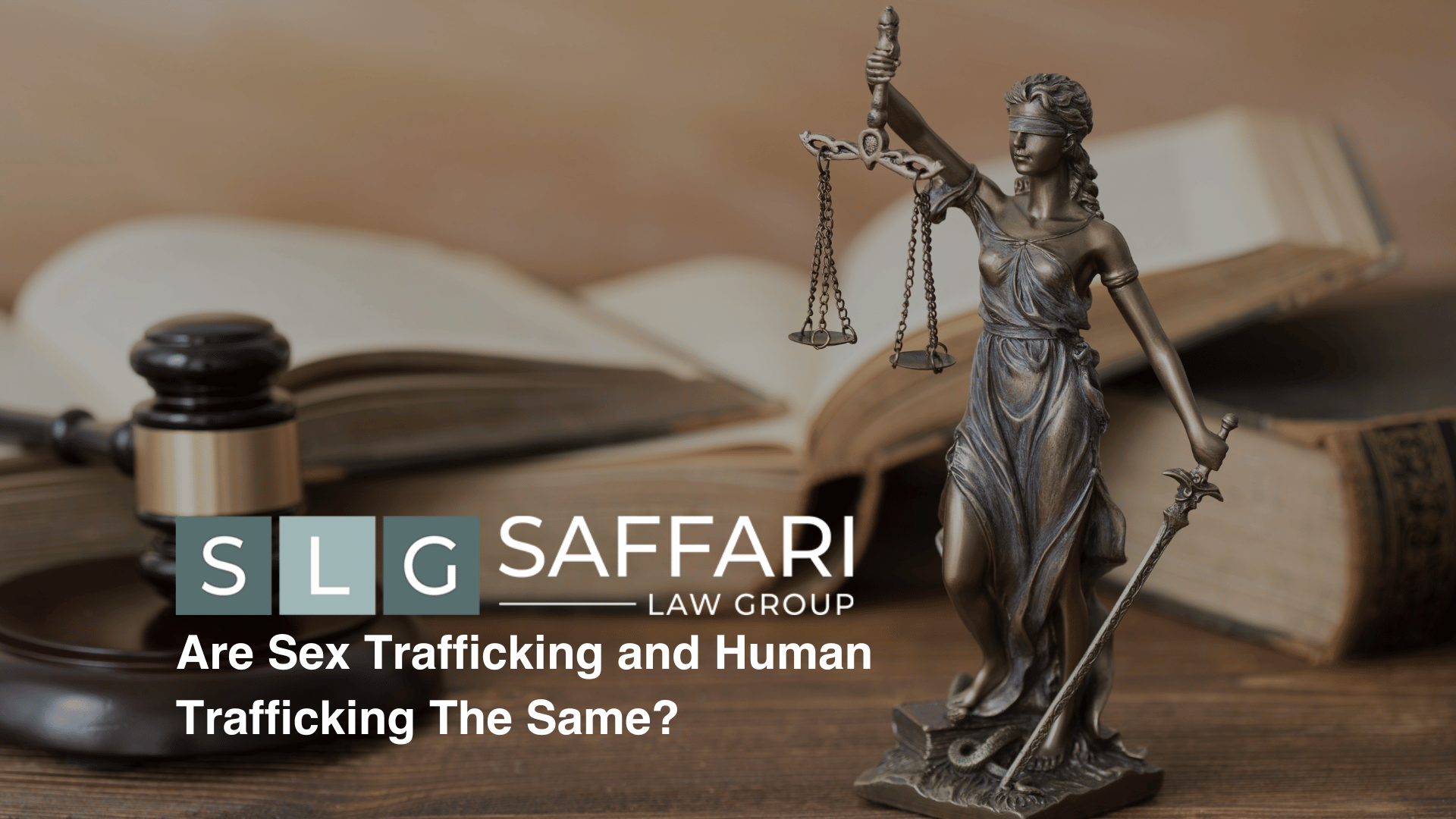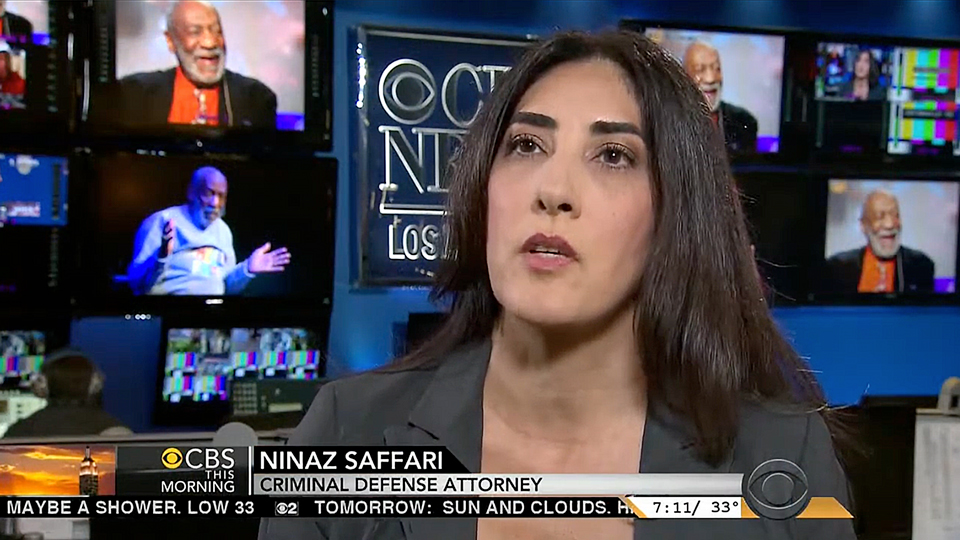Are Sex Trafficking and Human Trafficking The Same?

Table of Contents
‘Sex trafficking’ is commonly associated with kidnapping and can overlap with that type of crime in some instances, ‘human trafficking’ demands discussion and comes with its own two main subcategories: sex trafficking and labor trafficking.
The Differences Between Sex Trafficking and Human Trafficking
‘Human trafficking’ commonly brings to mind several things for most people, some accurate, others not. However, ‘human trafficking’ can be broadly defined as infringing one’s freedom through coercion, pretense, or force.
What is Sex Trafficking?
Sex trafficking is defined as the infringement of one’s freedom for commercial sex work, pornography, prostitution, exotic sex work, commercial sex work, etc. For example, if someone coerced someone else to perform sexual acts on camera under the pretense of offering a better life, that could be construed as sex trafficking.
What is Human Trafficking?
It’s important to note that while human trafficking can involve physically forcing someone into an act, this is not always the case, and offenders can often use more nuanced tactics of coercion to get what they want.
Labor Trafficking
Labor trafficking, on the other hand, is essentially modern-day slavery, in which one or more persons force another to perform certain labor services. Labor trafficking often includes moving someone to perform jobs such as a restaurant or factory worker, masseuse, or some other service. Also, that person is under some force, coercion, or duress.
Suffice it to say; there are countless instances in which the two types of human trafficking overlap, as they both entail coercion, force, or exploitation, thus making it impossible for the victim to consent to their situation, even if the perpetrator makes it appear as though their victim is willfully compliant. Again, the perpetrators of this type of crime do not always have to resort to violence to get what they want.
Transporting People Across State Lines
Although many examples of human trafficking may seem apparent– the transportation of prostitutes or some other sex worker across state lines is probably what is most commonly portrayed in popular media– much of sex trafficking is less obvious and takes place on a smaller scale.
To reiterate, human trafficking– despite what might be inferred by the name– does not necessarily have to involve the physical transporting of someone across any local, state, or international borders; the victim need only be coerced into an act they do not consent to for the crime to be considered trafficking.
The only prerequisite of the crime is that someone’s human rights have been infringed upon. To that extent, the true definition of a human trafficker is anyone who deprives another’s rights and freedoms under pretenses, manipulation, coercion, force, or duress. Some examples of human trafficking include:
Examples of Human Trafficking
- A workshop owner employs several undocumented immigrants, forcing them to conduct hard labor for slave wages. The employer tells the workers that he will report them to the immigration authorities should they stop working.
- Through emotional manipulation and the threat of violence, a man ‘employs’ several women to conduct sex work through webcamming. The women, who are live-in residents with this man, are afraid to leave and are expected to give this person a large portion of their earnings.
- A wealthy family has employed a woman from Central America to be a domestic servant. The woman is here illegally and is afraid to leave lest the family report her to the immigration authorities. What’s more, the family confiscates her passport and keeps this woman locked in the house, threatening her with violence should she try to escape.
- A trafficker hangs outside a county courthouse, conversing with alleged drug offenders as they go to court. He offers them drugs for free as a means to feed their addiction. Now, to have access to the drugs, the drug peddler tells them that they have to engage in sex acts for money.
- A young woman has been hired by what she thinks is an advertising agency to model a small line of clothes. She arrives on set only to find that she is expected to perform sex acts on camera and is told that her compliance is contractual and that she cannot leave.
Who Are Human Traffickers?
In most cases of human trafficking, the offender levies either guilt or the promise of a better life unto the victim, leaving the victim to develop a highly complex psychological relationship with their abuser.
Often, perpetrators of human trafficking include family members, peers, and even spouses, working in a sort of joint operation. A recent study showed that a little over half of offenders acted alone or with one to three partners that share a social or familial tie.
Sometimes trafficking can fall under a more complex, organized “gang” like structure (a gang being defined by California as three or more people, under a common name, carrying out criminal activity). When this happens, it is possible that this type of gang association, combined with a trafficking charge, could lead to a conviction enhancement, ultimately resulting in loftier sentencing.
Human Traffickers in the United States
For the most part, however, most human trafficking conducted in the United States is done on a smaller scale, primarily divorced from large organizations that bear a complex infrastructure. Most offenders of human trafficking– be it sex trafficking or labor– like their victims- are in some sort of financial straits. Perpetrators often cite money as the primary motivator for their crimes.
In many instances where the main offender is acting with only a handful of partners, female offenders– usually the offender’s wife or partner– works in the capacity of both victim herself and perpetrator, luring new victims into sex trafficking on behalf of her partner.
The Reality of Human Traffickers
In the same study, most human traffickers who were interviewed readily justified their actions, claiming that they were genuinely concerned with providing their victims with a better life.
Many also believed their actions did not constitute human trafficking and rationalized their behavior by blaming the victim. These same interviewees said that their practice was simply “smart business” and that human trafficking only spoke to their street smarts and ability to survive.
The Definitions of a Human Trafficker
Because the definition of human trafficking is somewhat broad, a judge may have some discretion in how to ultimately sentence a defendant based on the severity and scale of the crime, its context, a prior criminal record, or convictions under Penal Code 236.
Human trafficking is a multi-layered, multi-faceted crime, and many of the elements of the crime already inferred in its legal definition can be added to enhance the ultimate sentencing.
Human Trafficking Combined With Other Crimes
For example, threats of injury or use of force– while indicated or even implied in the definition of human trafficking– can aggravate the overall prison sentence. The examples above already come with fifteen years to a life sentence.
The infliction of a significant bodily injury toward the victim can result in an additional 5, 7, or 10 years in a California state prison. Additionally, if the prosecutor states that the trafficking was conducted to benefit a gang, the defendant could face a ‘gang enhancement,’ which would add 2, 3, or 4 years to said prison sentence.
Hiring A Human Trafficking Defense Attorney

Because of the multi-faceted complexity inherent to trafficking crimes, it’s relatively accessible for the prosecution to layer upon factors that would increase one’s prison time. For this reason, you must find it vital to hire a human trafficking defense attorney specializing in these types of crimes.
Despite the laws that allow prosecutors to compound human trafficking sentences, human trafficking does not have a high conviction rate in California. While the definition of the crime is somewhat broad, it’s hard to prove and prosecute.
Labor Trafficking Legal Defense
Labor trafficking has proven to be incredibly enigmatic, as many of the labor laws put into place invite areas of gray. The issue with proving that human trafficking has occurred has to do with getting the case to trial in the first place; many victims of human trafficking do not apply the term to describe their circumstances.
As previously stated, many of the victims have some prior relationship with the alleged offender and may genuinely believe that the offender’s intentions are good. Victims often blame themselves for the difficult circumstances they find themselves in.
Going To Trial On Human Trafficking Charges
Additionally, there seems to be some confusion amongst the public as to what constitutes human trafficking. If the case goes to trial, the prosecution faces the daunting task of proving that some psychological control or manipulation has occurred.
The lack of available resources to the victim often means a lower rate of bringing the case to court. If the case does reach court, jurors are often predisposed to believe the prosecution regarding most sex crime cases.
Whatever position you may find yourself in, if you have been accused of human trafficking, do not take anything for granted, and do not cut corners when hiring a defense attorney to work on your behalf.
Penalties For Human Trafficking
Since 2012, penalties for human trafficking have been largely outlined by the ‘Californians Against Sexual Exploitation Act’ (prop 35). Human trafficking– be it sex or labor trafficking– is always considered a felony, unlike the wide range of crimes that the state of California considers ‘wobblers– crimes that can be tried and tried and sentenced under different levels of severity depending on the circumstances.
Wobblers allow some discretion amongst the judge and prosecutors in how severely they want to try and convict a specific crime, often based on several factors, such as the alleged suspect’s criminal history or lack thereof.
However, when it comes to the severe crime of human trafficking, such discretions do not exist. The different types of human trafficking yield slightly different punishments.
Labor Human Trafficking in California
In labor trafficking, for example, the suspect faces the following sentences upon conviction: five, Eight, or Twelve years in a California State Prison, a fine of up to 500,000 dollars.
Sex Trafficking in California
On the other hand, human trafficking for forced sex work, child pornography, or extortion faces the charges of five, eight, or twelve years in a California State Prison, a fine of up to $500,00, and the requirement on the part of the defendant to register as a sex offender.
While similar, the crime of persuading a minor to perform commercial sex work carries the harshest penalties of human trafficking. These penalties are five to twelve years in prison or fifteen years to life if it has been determined that the accused used force, fear, threat of injury, or violence against the victim.
Subcategories of Human Trafficking
This is again an example of the aggregate penalties that often come with trafficking cases. This specific subcategory of trafficking also carries a fine of no less than 500,00 dollars and the requirement that the guilty register as a sex offender.
In addition to the sentences above, upon conviction, the court may determine that the defendant faces an additional five, seven, or ten years of prison time if it has been ascertained that the victim sustained a bodily injury while the perpetrator was committing or attempting to commit a trafficking offense.
Depending on the seriousness of the crime, the duration, and the amount of money or economic gain acquired from trafficking, the court may add one-million dollars to your fine.
Falsely Accused of Human Trafficking
California law keeps the language around human trafficking intentionally broad. For that reason, you may find yourself falsely accused. In the case of labor trafficking, for example, an accusation might simply come from a disgruntled employee, who could allege that they had been lied to or coerced into this job– both potential prerequisites for human trafficking.
However, there is always the possibility that these claims are exaggerated or somehow unsubstantiated. When it comes to this specific example, the alleged victim might have been unaware that they were free to leave the situation and that coercion was only inferred or imagined.
Perhaps the employer did threaten or make inappropriate suggestions about terminating employment; however, those threats never actually exceeded that employee’s freedom. In such an instance, a labor rights violation is probably a more suitable charge.
Defendant Accusations
In most cases, the defense will likely try to convince the jury that a lesser offense has taken place and look for a plea deal. Trafficking accusations often arise because there has been some sort of power imbalance between two or more people; however, when defending a case, it’s usually a matter of whether or not that imbalance has crossed into the territory of human trafficking.
Mistake of Law
Another standard route to defending this type of charge is the defense of a ‘mistake of fact’ or ‘mistake of law.’ The defense of ‘mistake of fact’ is based on the premise that the accused made an honest mistake and thus not only lacked the intention of doing anything wrong but simply lacked the personal capacity to carry out deliberate and malicious acts.
In human trafficking, this kind of defense is a harder sell because even while the defendant may be genuinely ignorant of certain aspects of the circumstance, it still has to be proven that the accused acted in ‘good faith’ toward the alleged victim.
Examples of a False Human Trafficking Accusation
In another example, say we had a woman who had an illegal immigrant employed as a housekeeper. Said woman keeps her housekeeper’s passport and documentation under lock and key for safekeeping.
Out of this scenario, there are already a few ways in which a ‘mistake of fact’ or ‘mistake of law’ defense could be seen. Perhaps this woman didn’t consider her worker’s immigration status, and thus that worker’s fear of retaliation by her employer was only imagined or inferred.
The woman herself not only had no intention of leveraging her worker’s immigration status against her, but she genuinely had no idea that her legal status was a factor. Additionally, she acted in good faith in keeping the documentation and storing it away, as she genuinely believed it would be safer. To that end, we have the beginnings of a solid defense based on the ‘mistake of fact’ and ‘mistake of law’ defenses.
Human Trafficking and Overlapping Crimes
Human trafficking, being as broad a term as it is, overlaps with several other related crimes. It is highly likely, therefore, that if a prosecuting attorney or district attorney wants to charge someone with human trafficking, they will want to charge one or more of the following offenses in addition to the crime above.
Again this relates to how easily it is to stack up additional charges out of the relatively broad definition of trafficking. Thus it is imperative to find a strong criminal defense attorney. One such closely related offense is if one attempts to deprive the liberty of another with the intent of committing extortion, this again falls under the umbrella of human trafficking.
Human Trafficking and Extortion
Under California law, extortion is the use of threat of force against another to attain money or property. Extortion and human trafficking overlap, in this instance, because the victim in this example is being coerced into doing a specific action, thus having their freedom infringed upon. The ‘threat’ imposed on the perpetrator satisfies the prerequisite of human trafficking and extortion.
Kidnapping and Trafficking
Perhaps the most obvious example of overlap may be the crime that comes to mind when people hear the word trafficking– kidnapping. California law defines kidnapping as the moving of a person some distance by use of force or fear.
Since kidnapping deprives a person of their liberty, the similarities between this offense and that of human trafficking are significantly more evident, and kidnapping and trafficking charges are often brought forth in conjunction. There are, however, some key differences between the two crimes.
The Difference Between Kidnapping and Human Trafficking
The first of which is that for a crime to be considered kidnapping, the actions taken by the perpetrator must involve either fear, force, or a combination of the two, whereas in the case of human trafficking, tactics such as lies, deceit, emotional manipulation, and coercion can also be used.
The second and probably more fundamental difference between the two crimes is that trafficking must involve the intent to obtain forced labor– be it sex work, labor, or some other form of coerced action.
What To Do When You’re Accused of Human Trafficking

Should you ever find yourself in a situation where you are accused of human trafficking, always remember your right to stay silent, as that right covers more problems than police or prosecutors might lead you to believe.
Second, get a lawyer involved immediately, even before charges are officially brought. In most cases, you will be notified in some capacity that a criminal investigation is underway. When this happens, contact a representative at Saffari Law to perform a pre-file investigation (PFI).
This type of preliminary action can shield you from the compounding charges that often come with trafficking charges; prosecutors will use this window of time before charges are brought to see exactly what will stick. A strong attorney will help prevent those sorts of things.
Hire The Best Human Trafficking Defense Attorney
A strong attorney can uncover discrepancies in how information was collected, leading to a lessening or even complete dismissal of the charges. The best route you have in defeating cases like this, especially sex cases, is to prevent the charges from being officially pressed in the first place. If the case eventually reaches trial, you will have some of the most experienced sex crime attorneys as your advocates, who will fight tirelessly. You will need to call the Saffari Law Group.









